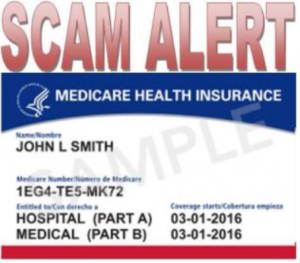 By Ari Lazarus
By Ari Lazarus
Consumer Education Specialist, FTC
October 6, 2018 1:00 a.m.
Scammers follow the news – and the money. A few months ago,we shared the newsthat Medicare is sending new cards to everyone who gets Medicare benefits, replacing your Social Security number with another number. As expected, scammers have been trying to cash in on this change.
These scammers typically reach out by phone and have tried a few different tactics. Sometimes, they claim to be a Medicare representative and ask to verify (ahem, steal) your information. Or they claim that there’s a fee for your new card (there isn’t). Others claim that your Medicare card was compromised and you need to move your money from your bank into “safer accounts” (it wasn’t, you don’t, and following their advice means putting your money in their pockets). We’ve even heard of some scammers offering plastic versions of the card for a fee – even though the real Medicare cards are paper and there are no legitimate plastic cards.
How can you avoid these scams? Remember these tips:
- Don’t give personal information to get your new Medicare card. If someone calls claiming to be from Medicare, asking for your Social Security number, bank information, or other information to get your new card, that’s a scam. Hang up. Medicare will never ask you to give personal information to get your new Medicare number and card.
- Don’t pay for your new card. It’s yours for free. If anyone calls and says you need to pay for it, that’s a scam. Hang up.
If you’ve already given out your bank account information over the phone, talk to your bank immediately. You’ll want to deal with any unauthorized activity on your account as soon as possible.
For more information about the new Medicare cards, go to go.medicare.gov/newcard.
And if you’re a victim of a scam, report it to the FTC.
